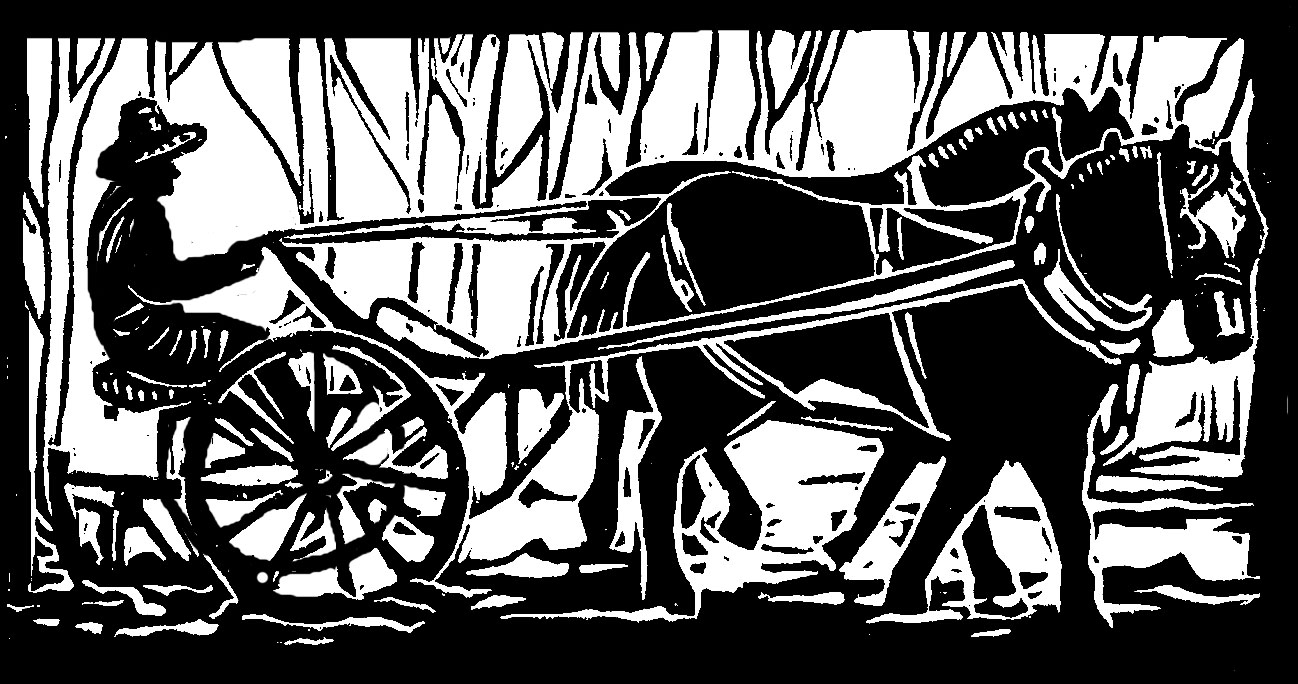Our farmer friends moved away some time ago, to a new farm in Maine. We hated to see them go, but wished them well in a new chapter of their lives. We were also wishing them well because they gave us some good farm stuff before they left.
We were glad for a batch of nearly new wooden stakes, as our originally seven-foot stakes have deteriorated into 3 or 4 footers after many seasons of use. We were glad too for some second-hand landscape fabric, which we've been wanting to try for years. We've used all kinds of weeding methods – from straw mulch to hoes to cultivators to compostable plastics. But we still can't keep up.
Last spring, we laid the fabric out in one of our greenhouses, with the encouragement of our faithful volunteer, who has valiantly tackled many garden beds overrun by weeds. She is also a good worrier, and emailed us in the middle of the night: “I was doing some research and maybe it'll be too hot and what if it kills all your tomatoes!”
We laughed blithely, and transplanted the tomatoes and peppers. A few weeks later, when our farmer group came to our place, we proudly showed off our landscape fabric. “We've never used it before,” we said.
When they got done laughing, as in “Ba ha ha! You've never used it before?” we told them we did something else new: “We usually plant the slicing tomatoes 18 inches apart, but we tried a foot apart for the first time. What do you think?”
“How come?” someone asked, probably thinking we had made some great new discovery about tomato productivity.
“Because that's where the holes were in our new used fabric,” we answered, and then we had another round of laughter.
Happily the tomatoes and peppers did not die from overheating. In fact, they thrived. There was nary a weed in sight, except, of course, in the last quarter of one bed, because the fabric wasn't long enough. There the weeds were impressively large and the peppers were impressively spindly.
We were stunned by the difference. Suddenly we had new hope: a possibility for two mid- to late-50s farmers to keep on farming. “Let's cover the whole farm in plastic!” enthused my fellow.
“Yes,” I agreed, “Let's cover as many of the garden beds and pathways as we can in woven polymer! It's not perfect, but it's pretty good. It lasts for years, and it means we might be able to handle the work without collapsing!”
We went right out and bought ourselves a 15 foot wide roll of fabric, to get us started on next year's weed-free garden. We rolled it out along our dirt road, a project the farm pooch found pretty exciting. He roared down the 200 feet length of fabric and leapt over the rest of the roll at the far end, over and over again, until he was puffing hard.
Meanwhile I set to marking the spacing. I crawled along with a yardstick and a piece of chalk, while my fellow followed with the propane-powered tool we'd borrowed from our other farmer friends, which makes the holes for the transplants.
Now this looks interesting, said the farm pooch. Well, maybe not that flaming tool, but this farmer crawling along sure is.
Since I wouldn't let the pooch chew on my yardstick, he got nosy with my chalk. Luckily I had an extra piece, which I gave to him. Then he spent the next half hour throwing the chalk in the air, chasing and pouncing on it, which gave us more time to work. We ended up with holey chalk, and holey fabric.
The next day my fellow and I laid the fabric out in the garden, stapled it down, and planted a clove of garlic into each hole. A clove of garlic, and a clove of hope that we can manage to keep on farming.
Originally published in the Monadnock Shopper News, Nov 12 - Nov 18, 2025
